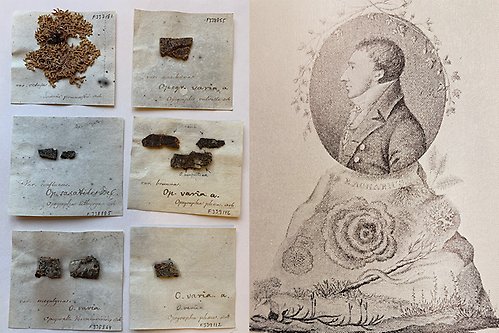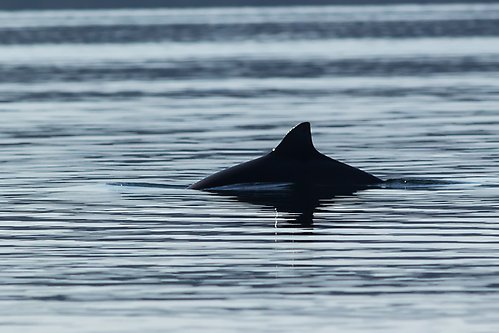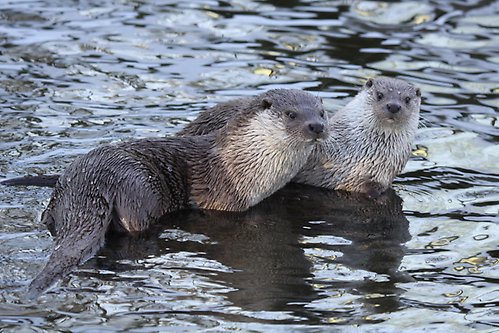Introduction to GBIF
GBIF, or the Global Biodiversity Information Facility, is a central organization in the field of biodiversity informatics and biodiversity data. The organization's main goal is to promote the accessibility of information about biodiversity worldwide. This is achieved by collecting, organizing, standardizing, and sharing data about the planet's rich flora and fauna. GBIF serves as a global infrastructure that aims to connect researchers, authorities, and organizations worldwide to achieve this goal.
GBIF Sweden hosted by the museeum
The Swedish node, 'GBIF Sweden', is an essential part of the global infrastructure and aims to collect and provide biodiversity data from and about Sweden. By contributing Swedish data to GBIF's global database, GBIF Sweden plays a crucial role in increasing our understanding of Sweden's and the world's biodiversity and how it changes over time and space.
GBIF offers a broad overview and information about biodiversity, encompassing everything from species and their distribution to ecosystems and environmental change. GBIF also provides a variety of services, including data access, visualization, and analysis tools, which help researchers effectively explore and use biodiversity data for groundbreaking research.
The importance of GBIF as a research infrastructure cannot be underestimated. Access to extensive biodiversity data, including data from GBIF Sweden, is essential for understanding and protecting the biodiversity of our planet. This information is used in all research fields External link., but especially in disciplines such as ecology, biogeography, climate studies, and the conservation of endangered species.
External link., but especially in disciplines such as ecology, biogeography, climate studies, and the conservation of endangered species.
GBIF enables global collaboration and knowledge sharing that is necessary to address the complex environmental challenges we face and to ensure the preservation of our world's biological heritage for future generations.
GBIF Vision
A world in which the best possible biodiversity data underpins research, policy and decisions.
GBIF Mission
To mobilize the data, skills and technologies needed to make comprehensive biodiversity information freely available for science and decisions addressing biodiversity loss and sustainable development.
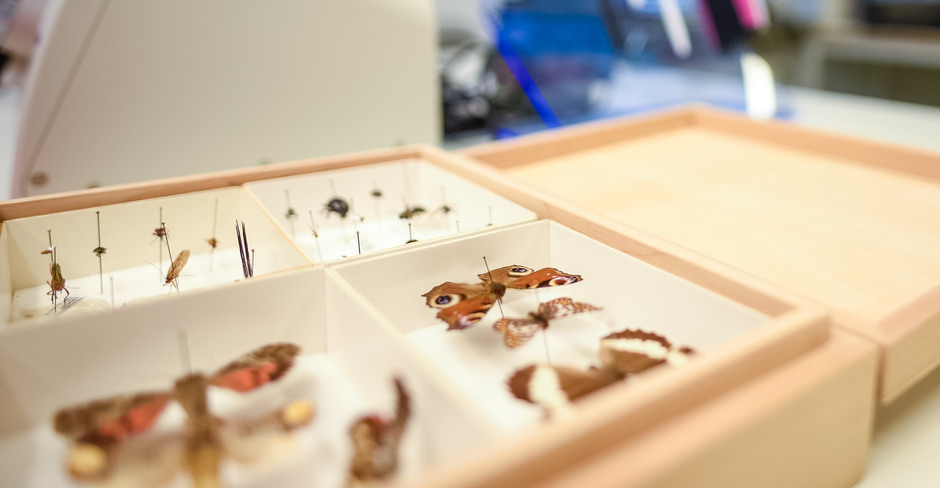
Services
GBIF only support open data and fully adheres to the principles of Open Science, FAIR External link. (Findable, Accessible, Interoperable, Reusable), and CARE
External link. (Findable, Accessible, Interoperable, Reusable), and CARE External link. (Collective benefit, Authority to control, Responsibility, Ethics).
External link. (Collective benefit, Authority to control, Responsibility, Ethics).
All data and multimedia are provided with open Creative Commons External link, opens in new window. licenses (CC0, CC-BY, or CC-BY-NC). Datasets and filtered downloads are furthermore, both assigned unique digital identifiers (DOIs) to facilitate easy data citation and traceability.
External link, opens in new window. licenses (CC0, CC-BY, or CC-BY-NC). Datasets and filtered downloads are furthermore, both assigned unique digital identifiers (DOIs) to facilitate easy data citation and traceability.
- Database Access: Access to a comprehensive database of biodiversity data from around the world via gbif.org
 External link, opens in new window. and www.gbif.se
External link, opens in new window. and www.gbif.se External link, opens in new window..
External link, opens in new window.. - Data Quality Control: Verification and data quality control to ensure reliable results, e.g., through GBIF's Data Validator
 External link, opens in new window..
External link, opens in new window.. - Data Standardization: Standardization of data formats and metadata for consistent, interoperable, and long-term data management.
- Data Visualization: Tools to visualize and explore biodiversity data in maps, charts, and graphs.
- Analysis Tools: Tools for analyzing and drawing conclusions from biodiversity data, e.g., through R
 External link. and Python
External link. and Python External link, opens in new window.
External link, opens in new window. - Data Collection and Sharing: Support for researchers and organizations to collect and share their own biodiversity data.
- Training and Capacity Building: Educational resources and events to raise awareness about biodiversity data and its use.
- Global Collaboration: Opportunities to participate in global research projects and collaborations in biodiversity data.
- Policy Development: Contributions to the development of policies and guidelines for the use and sharing of biodiversity data.
- Support: Support and technical assistance to facilitate the mobilization and use of biodiversity data.
As a participant country of GBIF, there are opportunities to participate in various collaborative programs and apply for funding for capacity-building activities, such as the Capacity Enhancement Support Programme External link, opens in new window. (CESP). Applications are coordinated through the Swedish node and should include collaboration with at least one other participant country.
External link, opens in new window. (CESP). Applications are coordinated through the Swedish node and should include collaboration with at least one other participant country.
GBIF administers annual awards for researchers and developers in the field of biodiversity informatics. Nominations of candidates’ active in Sweden, for the Ebbe Nielsen Challenge External link, opens in new window. and the GBIF Graduate Researchers Award
External link, opens in new window. and the GBIF Graduate Researchers Award External link, opens in new window., are made through the Swedish node. Information about these calls is posted annually on www.gbif.se
External link, opens in new window., are made through the Swedish node. Information about these calls is posted annually on www.gbif.se External link, opens in new window..
External link, opens in new window..
As a participant country, Swedish organizations and stakeholders have the opportunity to apply for support to establish a 'Hosted portal.' It is more or less a filtered data portal of gbif.org, where the filtering can be done at desired level, such as region, country, organization, or taxonomic level. A Hosted portal can be customized technically and visually to suit an organization's needs and preferences. GBIF provides support and technical maintenance resources. Hosted portals can serve as a platform to display and disseminate an organization's biodiversity data to promote global distribution and use of this data. Contact the Swedish Node Manager if your organization is interested in applying for a Hosted biodiversity portal. Learn more at https://www.gbif.org/hosted-portals External link, opens in new window..
External link, opens in new window..
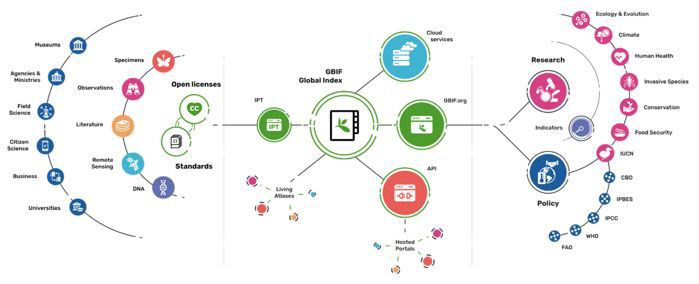
An overview of GBIF data hosts, data flows and data use.
Tools
Tools for mobilizing and publishing biodiversity data
GBIF Sweden is responsible for and administers the national instance External link. of GBIF's central data publishing tool, the IPT (Integrated Publishing Toolkit). It is a valuable resource for organizations and researchers who want to share biodiversity data with a broader audience. The IPT is developed as open-source software, which means it is freely available and customizable to various needs. The tool features a user-friendly interface that allows users to easily structure, quality-check, and publish biodiversity data in standardized formats. If data owners need assistance with data publishing via the IPT, we are happy to help.
External link. of GBIF's central data publishing tool, the IPT (Integrated Publishing Toolkit). It is a valuable resource for organizations and researchers who want to share biodiversity data with a broader audience. The IPT is developed as open-source software, which means it is freely available and customizable to various needs. The tool features a user-friendly interface that allows users to easily structure, quality-check, and publish biodiversity data in standardized formats. If data owners need assistance with data publishing via the IPT, we are happy to help.
IPT offers several advantages, including:
- Data Standardization: IPT helps users adhere to established biodiversity data standards and metadata formats, ensuring that data can be compared and integrated with other datasets.
- Quality Control: The tool includes built-in features for data quality control and validation, helping to ensure that the published data are reliable.
- Customizability: IPT can be customized and configured to fit the needs of different projects and organizations, making it flexible and user-friendly.
- Efficient Publishing: Through the IPT, users can easily publish their data to the GBIF network and make it available to a global audience, promoting data exchange and collaboration.
- Community Support: The IPT is part of the GBIF community and is supported by experts and resources that can assist users in effectively publishing and managing their biodiversity data.
In summary, GBIF's IPT is a powerful tool that facilitates the dissemination and accessibility of biodiversity data, thereby promoting research, conservation, and sustainable development worldwide. It also enables easy tracking of dataset versions over time and assigns stable digital identifiers (DOIs).
Tools for accessing and analyzing biodiversity data
GBIF’s APIs External link. (Application Program Interfaces) are powerful tools that allow users to retrieve and work with biodiversity data from GBIF's extensive database. These APIs provide programmatic access to data on species, observations, geographic information, and much more. By using GBIF's APIs, developers and researchers can integrate biodiversity data into their own applications, analyses, and projects, enabling more flexible and customized solutions for exploring and leveraging biodiversity information.
External link. (Application Program Interfaces) are powerful tools that allow users to retrieve and work with biodiversity data from GBIF's extensive database. These APIs provide programmatic access to data on species, observations, geographic information, and much more. By using GBIF's APIs, developers and researchers can integrate biodiversity data into their own applications, analyses, and projects, enabling more flexible and customized solutions for exploring and leveraging biodiversity information.
GBIF's R package, rgbif External link., is a tool for retrieving and exploring biodiversity data directly within the R programming environment. It provides R users with straightforward and programmatic access to biodiversity data. With the help of rgbif, researchers and data scientists can effectively integrate GBIF data into their analyses, visualizations, and projects within R, allowing for more in-depth and tailored studies of biodiversity and ecosystems. It is a valuable tool, for example, for those working with biodiversity data and statistical analysis in the R environment. A corresponding package is available for Python users and is called pygbif
External link., is a tool for retrieving and exploring biodiversity data directly within the R programming environment. It provides R users with straightforward and programmatic access to biodiversity data. With the help of rgbif, researchers and data scientists can effectively integrate GBIF data into their analyses, visualizations, and projects within R, allowing for more in-depth and tailored studies of biodiversity and ecosystems. It is a valuable tool, for example, for those working with biodiversity data and statistical analysis in the R environment. A corresponding package is available for Python users and is called pygbif External link..
External link..
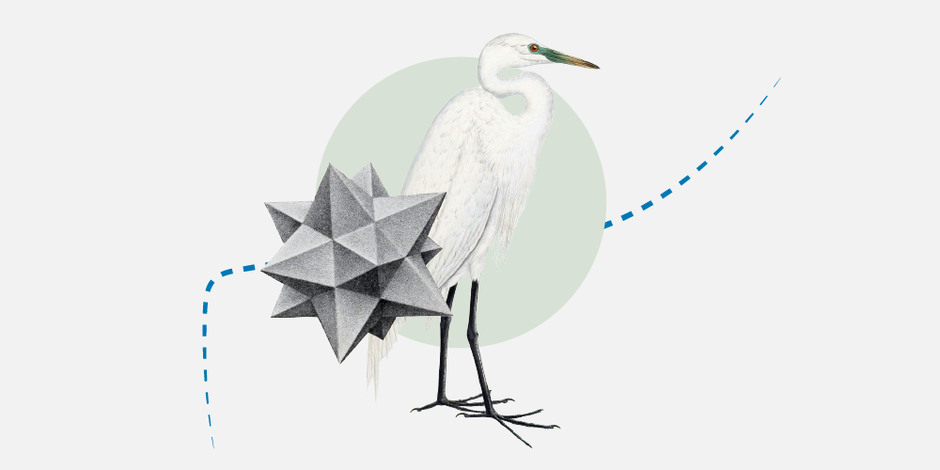
Databases
Data Access
The data made available by GBIF Sweden can be accessed from several data portals. These include the national website for GBIF Sweden (www.gbif.se External link.), the SBDI data portal (https://tools.biodiversitydata.se/
External link.), the SBDI data portal (https://tools.biodiversitydata.se/ External link.), and the global GBIF data portal (www.gbif.org
External link.), and the global GBIF data portal (www.gbif.org External link.).
External link.).
GBIF's data portal is a central digital platform that enables access to and exploration of biodiversity data from around the world. The portal serves as a comprehensive resource that collects and provides an enormous amount of information about the planet's biological diversity.
The datasets made available by GBIF Sweden are furthermore accessible through the national installation of the GBIF publishing tool, IPT (https://www.gbif.se/ipt/ External link.).
External link.).
What data are available?
GBIF Sweden provides access to several different types of data. The simplest form consists of metadata, which is descriptive information about a dataset. This format can, for example, be used by researchers when preparing a scientific publication. Scientific journals often require research data to be made available according to FAIR principles. To meet these requirements, descriptive information with a stable DOI can be prepared while waiting for a study to be accepted, after which the dataset can be populated with data and published.
There are several species lists, or checklists, available. These are lists of species names. Some examples include the national checklist Dyntaxa External link., the Swedish Red List
External link., the Swedish Red List External link. of threatened species, and the list of species assessed to be invasive alien species in Sweden
External link. of threatened species, and the list of species assessed to be invasive alien species in Sweden External link..
External link..
Species observations usually follow the format of occurrence data, which is the broadest and most common data type. GBIF Sweden provides data from Natural History Museums, Universities, Government Agencies, as well as the Private Sector. Some examples of data available include the Swedish Museum of Natural History's bird ringing data External link., herbarium collections
External link., herbarium collections External link., and fossil animals
External link., and fossil animals External link.. A significant portion of the available data consists of spontaneous observations made by citizen scientists, for example, Artportalen
External link.. A significant portion of the available data consists of spontaneous observations made by citizen scientists, for example, Artportalen External link. and iNaturalist
External link. and iNaturalist External link..
External link..
Genetic data from e.g. metagenomic sequencing or environmental DNA (eDNA), is currently made available as occurrence data, but work is underway to develop standards and data models to better be able to present this type of data.
The last and most advanced data type made available by GBIF Sweden is structured systematically collected data or sample-based data. This includes surveys or studies using a defined methodology, such as annual monitoring programs or research data. Some examples of data available include the Swedish Malaise Trap Project External link., SMHI's marine surveys (SHARK
External link., SMHI's marine surveys (SHARK External link.), Swedish Bird Survey
External link.), Swedish Bird Survey External link., and Swedish Butterfly Monitoring
External link., and Swedish Butterfly Monitoring External link..
External link..
Collaborations
GBIF Sweden is primarily funded by the Swedish Research Council External link. (Vetenskapsrådet or VR) as part of the national research infrastructure, SBDI, Swedish Biodiversity Data Infrastructure
External link. (Vetenskapsrådet or VR) as part of the national research infrastructure, SBDI, Swedish Biodiversity Data Infrastructure External link. (Grant No: 2019-00242). The Swedish Research Council also administers the membership fee to GBIF on behalf of the Swedish government and holds the role as Head of Delegation of the GBIF Sweden delegation.
External link. (Grant No: 2019-00242). The Swedish Research Council also administers the membership fee to GBIF on behalf of the Swedish government and holds the role as Head of Delegation of the GBIF Sweden delegation.
SBDI - Swedish Biodiversity Data Infrastructure - is the result of an amalgamation and consolidation process of Swedish e-infrastructures for biodiversity and ecosystem research. SBDI is a national research infrastructure and consortium with contributions from eleven organizations across Sweden: the Swedish Museum of Natural History (NRM; Principal Organization), the Swedish University of Agricultural Sciences (SLU), Karolinska Institute (KI), Linnaeus University (LnU), Lund University (LU), the Royal Institute of Technology (KTH), Stockholm University (SU), the Swedish Meteorological and Hydrological Institute (SMHI), Umeå University (UmU), University of Gothenburg (GU), and Uppsala University (UU). The consortium covers the entire spectrum of biodiversity data sources represented in the Swedish research community.
More information about global collaborations can be found at: https://www.gbif.org/partners External link..
External link..
Resources and Links
Links
GBIF data portal: https://www.gbif.org/ External link.
External link.
GBIF Sweden: https://www.gbif.se/ External link.
External link.
SBDI data portal: https://biodiversitydata.se/ External link.
External link.
GBIF data blog: https://data-blog.gbif.org/ External link.
External link.
GBIF Community Forum: https://discourse.gbif.org/ External link.
External link.
GBIF Data use club: https://www.gbif.org/data-use-club External link.
External link.
Resources
Manuals for publishing data and latest best practice: https://docs.gbif.org/documentation-guidelines/en/ External link.
External link.
Course material: https://www.gbif.org/training-old External link.
External link.
A Quick-guide to Darwin Core standard (DwC) and terms: https://dwc.tdwg.org/ External link.
External link.
Strategic Documents
GBIF Strategic framework: https://www.gbif.org/strategic-plan External link.
External link.
Events
You can find information about current conferences, workshops, webinars, and other upcoming events at https://www.gbif.se/events/ External link..
External link..
Publications
- GBIF produces an annual compilation of research made possible by GBIF-mediated data. The latest Science Review can be found at https://www.gbif.org/science-review
 External link..
External link.. - GBIF 20 years - a compilation by CODATA: https://doi.org/10.35035/ctzm-hz97
 External link..
External link.. - GBIF's economic valuation - an independent study by Deloitte Access Economics: https://www.deloitte.com/au/en/services/economics/perspectives/total-economic-value-open-access-database-living-world.html
 External link..
External link.. - A compilation of how GBIF data is used in research: Heberling et al. 2021, https://doi.org/10.1073/pnas.2018093118
 External link..
External link..
Mailing Address
GBIF Sweden
PO Box 500 07
104 05 Stockholm
Sweden
Contact the Infrastructure
For general inquiries and support, please use gbif@nrm.se. It is also possible to reach us through the SBDI support form External link.. If you require advanced user support, such as application development or advanced analysis, please use the SBDI support form.
External link.. If you require advanced user support, such as application development or advanced analysis, please use the SBDI support form.
Contact the Node Manager for GBIF Sweden if you, e.g., need support in organizing a course or workshop, want to nominate candidates for GBIF's awards, apply for support for collaborative projects within CESP, or if you want to apply for setting up a Hosted data portal.
GBIF Sweden Staff
Ulf Jonsell | Vetenskapsrådet
Head of delegation
+46 8 546 440 00
ulf.jonsell@vr.se

Veronika A. Johansson | Node Manager GBIF Sweden Project coordinator SBDI, BIO
+4685195 4036




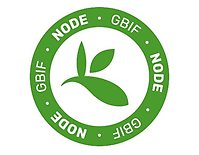
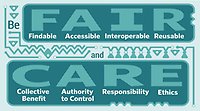

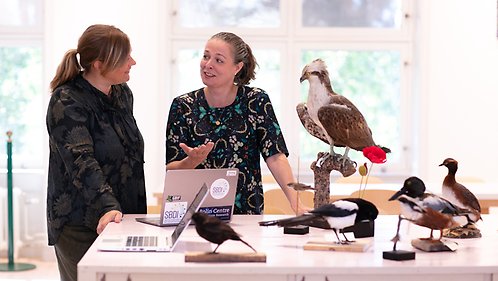

_Web_(1).jpg)
